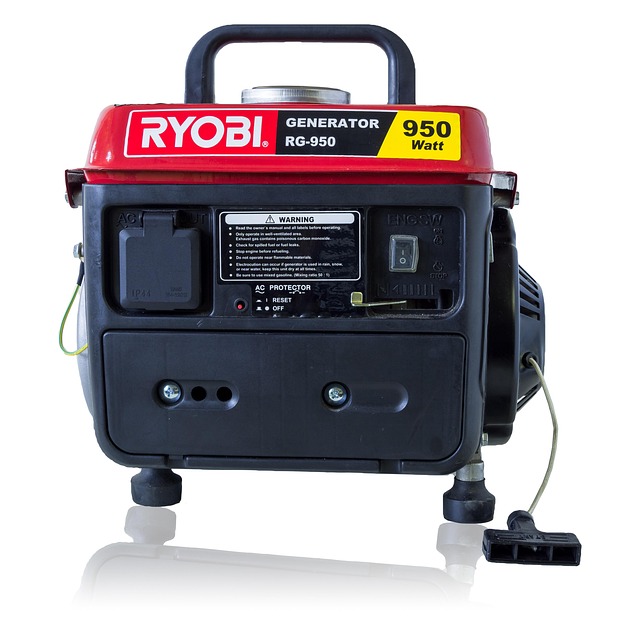Silent Diesel Generators: The Ultimate Home Power Solution
Power outages can disrupt daily life, causing inconvenience and potential safety concerns. Silent diesel generators have emerged as a reliable solution for homeowners seeking uninterrupted power supply. These advanced generators offer a combination of efficiency, quieter operation, and dependable performance, making them an attractive option for residential use. This article explores the key features, benefits, and considerations of silent diesel generators as a home power solution.

When electrical grids fail, having a dependable backup power source becomes critical for maintaining comfort and security at home. Diesel generators have long been valued for their durability and fuel efficiency, but traditional models often produce significant noise that can be disruptive. Modern silent diesel generators address this concern by incorporating advanced sound-dampening technology, making them increasingly popular among homeowners seeking reliable yet unobtrusive power solutions.
What Makes a Silent Diesel Generator Ideal for Home Use?
Silent diesel generators are specifically engineered to minimize operational noise through several key design features. These units typically include sound-insulating enclosures, vibration-dampening mounts, and specially designed exhaust systems that reduce decibel output significantly. The enclosed casing not only contains sound but also protects internal components from weather and debris, extending the generator’s lifespan. Additionally, diesel fuel offers better energy density compared to gasoline, meaning these generators can run longer on less fuel, making them cost-effective for extended power outages. Their robust construction and ability to handle heavy electrical loads make them suitable for powering essential home appliances, heating systems, and electronic devices simultaneously.
How Quiet is a Silent Diesel Generator Compared to Regular Models?
The noise reduction achieved by silent diesel generators is substantial when compared to conventional models. Standard diesel generators typically operate at sound levels ranging from 70 to 100 decibels, which is comparable to heavy traffic or a lawnmower. In contrast, silent models generally produce between 50 and 65 decibels at a distance of seven meters, roughly equivalent to normal conversation or background office noise. This reduction is achieved through multi-layered acoustic insulation, specialized mufflers, and engine mounting systems that absorb vibrations before they can transmit sound. The actual noise level varies depending on the generator’s size, load capacity, and quality of construction. Higher-end models may incorporate additional noise-reduction technologies that bring sound levels even lower, making them suitable for residential areas with strict noise ordinances.
Fuel Consumption and Efficiency of Silent Diesel Generators
Diesel generators are renowned for their fuel efficiency, particularly when operating at optimal load levels. A typical home-sized silent diesel generator consuming between 5 and 10 kilowatts will use approximately 0.5 to 1.5 gallons of diesel fuel per hour, depending on the electrical load being supported. Running at 50 to 75 percent capacity generally yields the best fuel economy, as engines operating at very low or maximum loads tend to be less efficient. Diesel fuel’s higher energy content per gallon compared to gasoline means these generators can produce more electricity from the same volume of fuel. Modern units often include automatic load management systems that adjust engine speed based on power demand, further improving efficiency. Regular maintenance, including clean air filters and proper oil levels, ensures the engine continues to operate at peak efficiency throughout its service life.
Choosing the Right Silent Diesel Generator for Your Home
Selecting an appropriate generator requires careful assessment of your household’s power needs. Begin by calculating the total wattage of essential appliances and systems you want to operate during an outage, including refrigerators, heating or cooling systems, lights, and critical electronics. Add approximately 20 percent to this total to account for startup surge requirements, particularly for motor-driven appliances. For most homes, generators in the 5 to 15 kilowatt range provide adequate coverage. Consider whether you need a portable unit that can be stored and deployed as needed, or a permanently installed standby system with automatic transfer switches. Evaluate the generator’s runtime capacity on a full tank, as this determines how long it can operate without refueling. Quality certifications, warranty coverage, and availability of local service support should also factor into your decision.
| Product Type | Typical Provider Examples | Power Range | Estimated Cost |
|---|---|---|---|
| Portable Silent Diesel Generator | Generac, Champion Power Equipment | 5-8 kW | $1,500-$3,500 |
| Mid-Range Home Standby | Cummins, Kohler | 10-15 kW | $3,000-$6,000 |
| Premium Whole-House System | Caterpillar, Perkins | 15-25 kW | $6,000-$12,000 |
| Industrial-Grade Residential | MTU, FG Wilson | 25+ kW | $10,000-$20,000+ |
Prices, rates, or cost estimates mentioned in this article are based on the latest available information but may change over time. Independent research is advised before making financial decisions.
Maintenance and Long-Term Performance
Proper maintenance is essential for ensuring your silent diesel generator operates reliably when needed most. Routine tasks include checking and changing engine oil every 100 to 200 hours of operation or annually, whichever comes first. Air filters should be inspected regularly and replaced when dirty to maintain proper combustion and efficiency. Fuel quality matters significantly with diesel generators; using clean, fresh fuel and adding stabilizers if the unit will sit unused for extended periods prevents fuel degradation and injector clogging. Battery maintenance is critical for units with electric start systems, requiring periodic charging and terminal cleaning. Exercise the generator monthly by running it under load for at least 30 minutes to keep internal components lubricated and prevent fuel system issues. Professional servicing every year or after significant use ensures all systems function correctly and can identify potential problems before they cause failures.
Silent diesel generators represent a practical investment for homeowners seeking reliable backup power without excessive noise disruption. Their combination of fuel efficiency, durability, and reduced sound output makes them well-suited to residential applications. By carefully assessing power requirements, understanding operational characteristics, and committing to regular maintenance, homeowners can ensure their generator provides dependable service for years to come.




